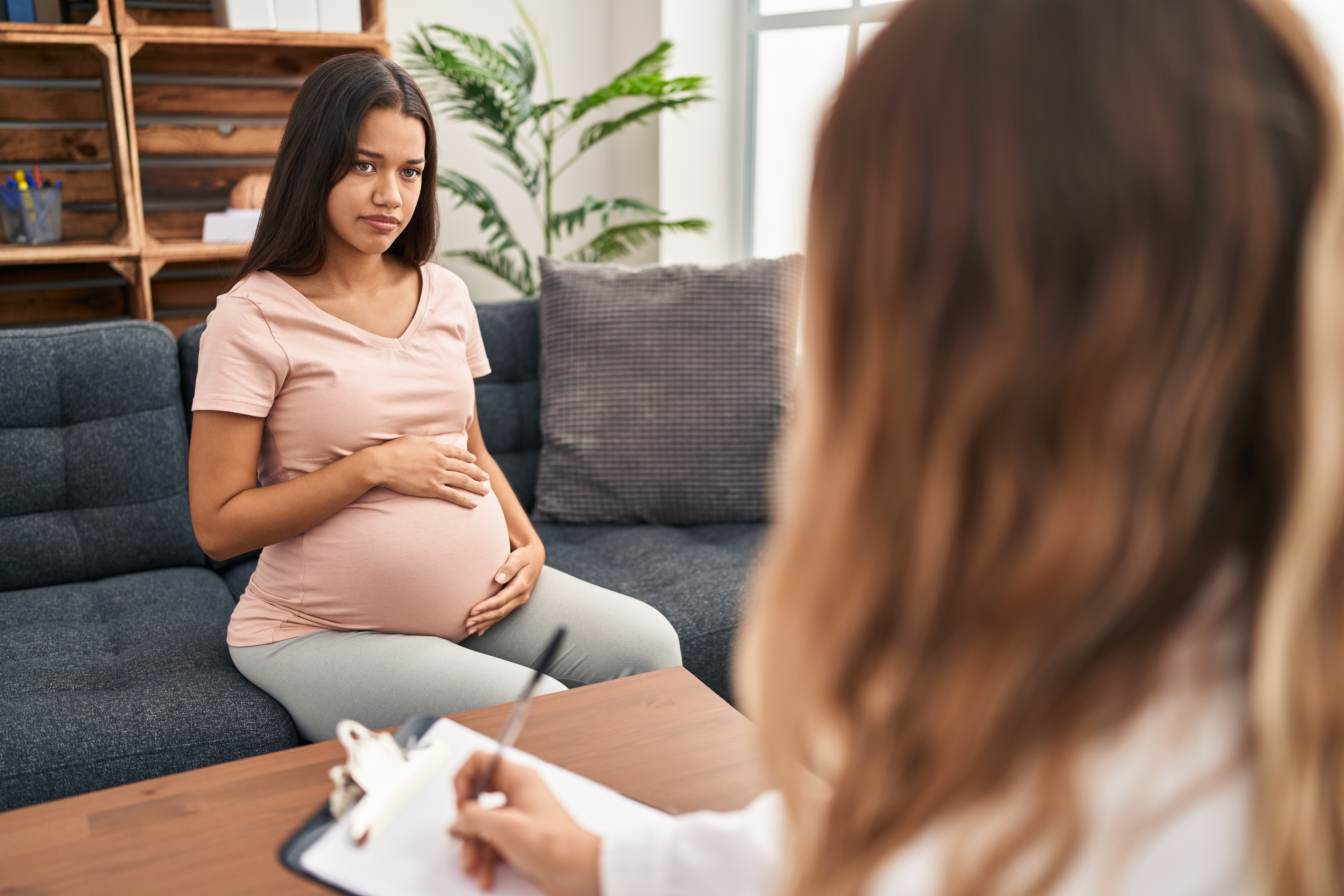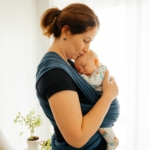Postpartum depression affects about 15% of women after the birth of a child. Women with a history of major depression prior to pregnancy are at increased risk, especially women who have experienced postpartum depression after a previous pregnancy.
Exactly how family history of psychiatric illness modulates risk for postpartum depression is less clear. Previous studies have shown an aggregation of postpartum depression in families with early onset major depression and bipolar disorder (Forty 2006; Murphy-Eberenz 2006; Payne 2008). Family studies of postpartum psychosis have supported a genetic susceptibility in patients with bipolar disorder, as well as overlapping genetic factors predisposing to both postpartum psychosis and bipolar disorder (Jones 2001).
In a recent study, researchers take advantage of the meticulously collected data in the Danish birth and psychiatric treatment registers in order to evaluate familial risk for postpartum psychiatric illness. The analysis included women who were first-time mothers (born in Denmark in 1970 or later) who gave birth after the age of 15 (N=362,462).
Postpartum psychiatric illness was defined as an episode of illness occurring up to six months postpartum. Data was derived from inpatient hospital admission and outpatient psychiatric clinic records but not from the records of general practitioners. Thus it is likely that the most severe psychiatric episodes were captured; however, women with milder illness seeking care from their primary care provider might not be included in this analysis.
Previous studies evaluating risk of postpartum psychiatric disorders have all been conducted in cohorts of women with a prior psychiatric history; in contrast, the current study evaluated familial risk separately in women with and without a prior psychiatric history.
In this analysis, the researchers observed that the relative risk of postpartum psychiatric illness was elevated when the mother had a first-degree family member with a psychiatric disorder (hazard ratio=1.45, 95% CI=1.28-1.65). It was the highest when the mother had a first-degree family member with bipolar disorder (hazard ratio=2.86, 95% CI=1.88-4.35). The sex of the relative with psychiatric illness did not appear to make a diffence in terms of risk.
Personal psychiatric history was a stronger independent predictor of postpartum psychiatric disorders than family history (HR 8.66; 95% CI 7.97–9.40); however, family history of psychiatric illness was a stronger predictor among women without a personal psychiatric history. Thus, in women with no psychiatric history, a careful review of family history is warranted.
Based on these findings, we can infer that:
If a woman has a mother, father, brother, sister, or child with any psychiatric disorder, her risk of having of an episode of postpartum psychiatric illness is increased 1.5-fold compared to women with no family history.
If a woman has a mother, father, brother, sister, or child with bipolar disorder, her risk of having of an episode of postpartum psychiatric illness is increased nearly threefold compared to women with no family history.
While this study is one of the larger studies evaluating familial risk for postpartum psychiatric illness, one limitation of the current study is that it looks at risk predominantly in women with more severe psychiatric illness. Therefore, these results may be more accurate in estimating the risk of serious postpartum illness and potentially may not be as accurate for postpartum psychiatric disorders overall.
From this study we can conclude that a family history of psychiatric illness, especially bipolar disorder, is an important risk factor for postpartum psychiatric disorders. Although postpartum psychiatric illness is a uniquely female event, this study indicates that a history of psychiatric illness in male relatives is just as important as a history of psychiatric illness in female relatives in terms of determining risk. Thus, when we question women about risk factors for postpartum psychiatric illness, we must ask not just about postpartum illness but must enquire more broadly about history of psychiatric illness in both male and female relatives.
As mental health providers, this finding may not significantly affect how we assess risk, as we assume that all of the female patients we see are at increased risk for postpartum illness because they come to us with a personal history of psychiatric disorder. However, for obstetric providers this is an extremely valuable piece of information, as many of the patients they see may not have a personal history of psychiatric disorder.
Current guidelines from the US Preventive Services Task Force and the American College of Obstetricians and Gynecologists recommend that women be screened for risk factors for perinatal psychiatric illness so that women at highest risk may be identified early. However, neither recommendation mentions family history as a predictor for risk of postpartum psychiatric disorders. Without taking family history into consideration, we may label a woman without a personal history of psychiatric illness as being low-risk; however, if she has a first degree relative with bipolar disorder, her risk for postpartum illness may, in fact, be very high.
Ruta Nonacs, MD PhD
Bauer AE, Maegbaek ML, Liu X, Wray NR, Sullivan PF, Miller WC, Meltzer-Brody S, Munk-Olsen T. Familiality of Psychiatric Disorders and Risk of Postpartum Psychiatric Episodes: A Population-Based Cohort Study. Am J Psychiatry. 2018 Aug 1;175(8):783-791.








Leave A Comment